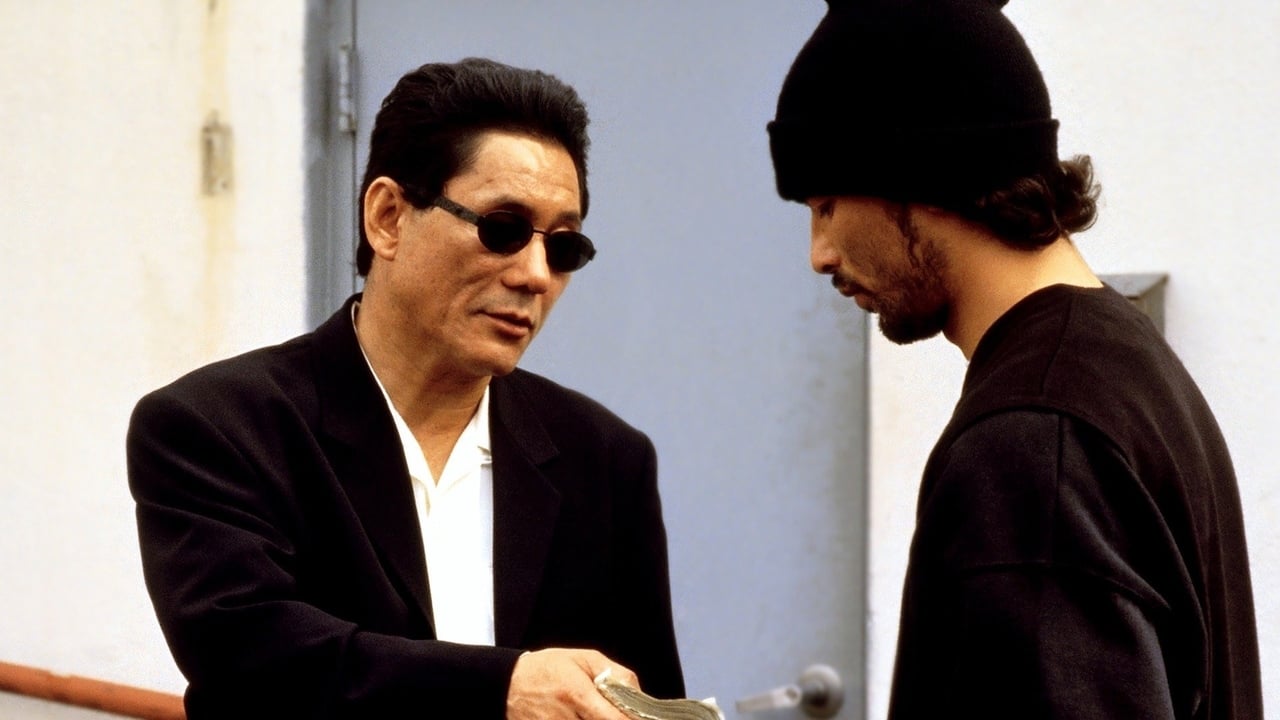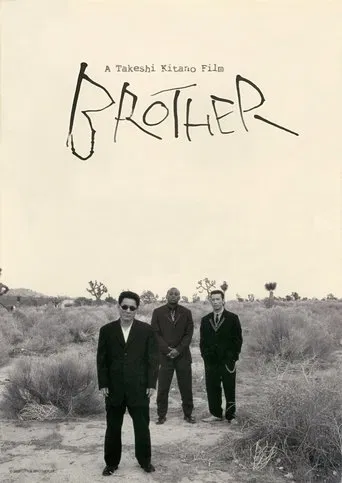

Yamamoto is a Yakuza boss who is exiled to America and forced to live with his half-brother, but the life of a Yakuza seems to follow you everywhere as Yamamoto begins his violent rise to the top once more.Sanotine and Outage are perhaps two of Kitano's finest and if I had to pick between the two, Outrage would come on top...Brother is Kitano's transition to the States because apparently you're not a good director if you don't make a Hollywood movie! Brother is missing many Kitano's personal touches, his weird humour and his dark personality. The film seems to be just like all the other weak gangster movies that are churned out, with pointless violence and not a story to be told, I didn't find myself making any sort of connection with any of the characters unlike Murakawa in Sonatine and Otomo from Outrage.
... View MoreBrother is another of Takeshi Kitano's 'Yakuza' thrillers, though this time the Yakuza are only a small part of the picture and only sometimes set in Japan. Akani (Kitano) is a hit-man who has bitten off more than he can chew- killed some of the wrong people, if at the right place at the right moment- and is advised to leave the country. He joins his brother in LA and soon he and a rag-tag group of hoodlums- mostly by way of the chilling, quiet audacity and cunning shooting skills of Anaki- rise the ranks as big-time crime lords in LA... that is, until, they mess with the Italians.This part of the story, admittedly, is rather typical and maybe just something Kitano felt he had to work with as one of those staples of the genre: rise and undoubted fall of a skilled but flawed criminal mastermind/killer. But Brother is most impressive not for its plot, which can occasionally appear ragged and disconnected (perhaps by design as Kitano is the editor), but for presentation. Kitano himself as a presence/star/actor is so cool that had he been around during Melville's time he could wipe the floor with Alan Delon and even Belmondo in the bad-ass department. This is just one component to Brother's success though since Kitano could put himself in just about anything and make that part of it look cool. Coolness isn't enough in Brother, and rightfully so; this isn't a fun movie entirely to watch, even if one might feel guilty in enjoying some of the more crazy shoot-outs and bouts of violence.The body count here, according to the trivia, is 78. This is a high number, but despite seeing it in a cut R-rated version it doesn't feel very compromised (mayhap it is and I'm being naive, but it's a first-time viewing all the same). It's a real sight to see to witness how Kitano makes these encounters of violence surprising; the first big one, with the first time Omar Epps and Kitano run into each other on the street (glass breaks, scoff and demand, glass cut to the face) the way its edited is fantastic in timing and perception- not minimalist, but something a few beats different then what one would normally see. We also see Kitano's knack at unusual but inventive framing devices, like a dark, massive shoot-out under a bridge at night with warring gangs, and only the lights from the guns blazing off of the bodies. Other moments like these are a sight of bodies laid out in the Japanese word of "Death", and when one gangster is already dead when a group in a car pull up to a house: Kitano focuses on that. The final shoot-out, as well, is unexpected.It's not a great movie, and suffers from the flaws mentioned at the top. Yet I'd recommend Brother to any genre fan, to those chest-deep in Yakuza flicks and one who's only aware of Kitano from Zatoichi. This is no Shoot Em Up, but a serious picture about the damning implications of a life devoted to self-destruction and annihilation for stupid, materialist and territorial goals. If it's not anything entirely new its film-making enriches what's conventional, and Kitano is always clever at bending the lines.
... View MoreFantastic portrayal of the ruthless and die-hard Yakuzas. The great storyline manifests emotional and creative intelligence, and incites continuous interest. There is some humour amongst the intense action and gripping plot. A must see.There are plenty of assassinations, assassination attempts, demonstrations of power/allegiance/ruthlessness/respect. The movie shows the felicity that comes from power and wealth, and the terrors of living in fear of being assassinated and losing your friends and family to bullets and bombs.CAREFUL, THE FOLLOWING IS A SPOILER:A Yakuza's (Aniki) boss is killed, and with the Japanese police interfering in the gang war and Aniki's gang joining up with the enemy gang, "Aniki" (Big Brother) decides to move to the U.S. He finds his younger brother and immediately gets himself into gang activity and starts a gang and war of his own in America.
... View MoreIt is really worth noting that this is the first film 'Beat' Takeshi Kitano made outside of Japan, and was in fact a co-production with American studios.I believe it was Mark Kermode who made a really good point about this film, he compared it to a Jackie Chan Hollywood film that was out at the time. Kermode noted that both Jackie Chan and Kitano play 'fish-out-of-water' characters in their respective films, but whilst Chan's character comes to the US from Hong Kong and initially doesn't really fit in but becomes more American by the end of the film, Kitano's character comes to the US from Japan, and becomes increasingly more Japanese as the film goes on. He not only doesn't fit in, but he allows his 'fish-out-of-water' status to reaffirm his identity.That is not to sat that he doesn't make friends, and that is, in fact, the main theme of the story. He finds true friendship and identification with someone who, initially, seems to be his polar opposite, a young black American, a small time hood. This film emphasises the point that whilst culturally people from another country may be very different, there can still be a connection, bond and respect formed between them.Essentially this film can be viewed as a counter-point to Kitano's earlier masterpiece Sonatine, and just as with that film, the plot is basically a man going on a long detour before committing suicide. As with Sonatine, during this detour, the main character and more importantly the audience, learn some valuable lessons about life.
... View More